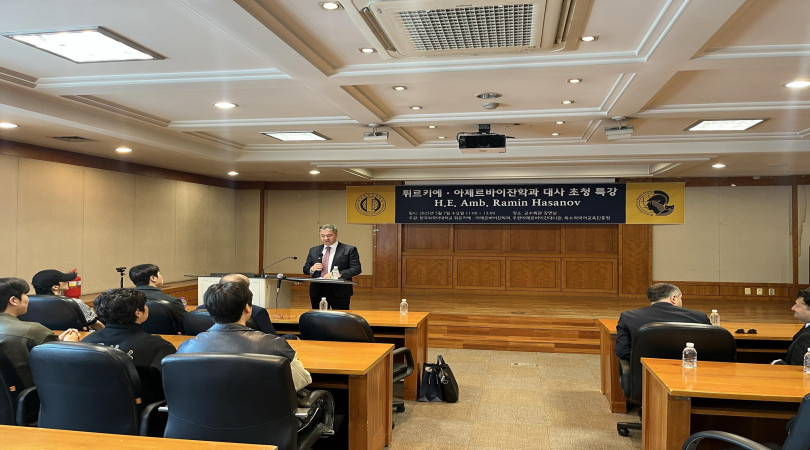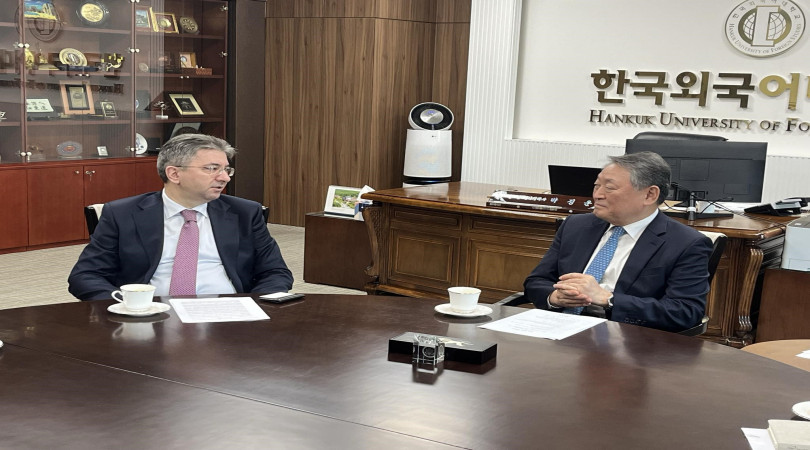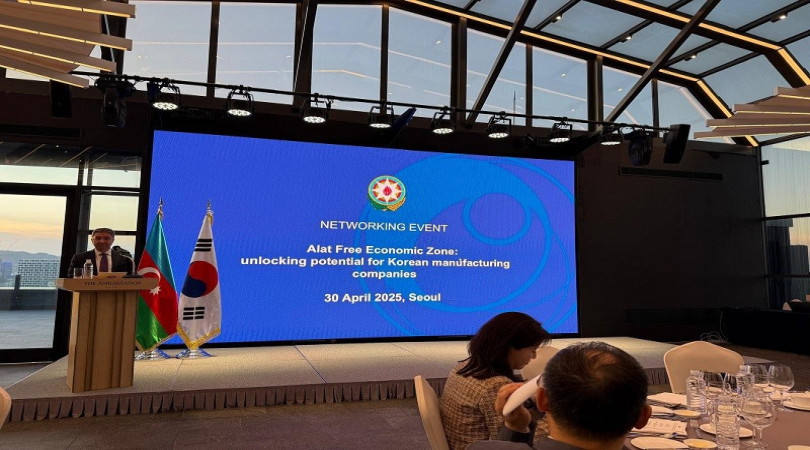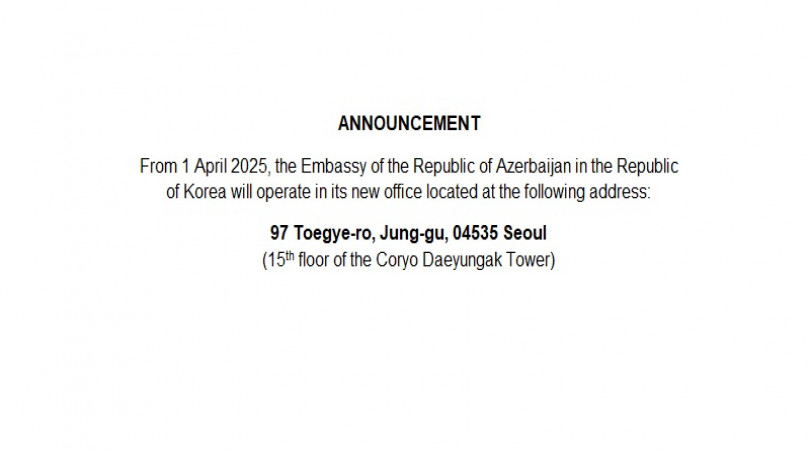Combating human trafficking
Combating trafficking in human beings in Azerbaijan is guided by the following principles: to prevent victims of trafficking in human beings from social discrimination, to ensure security and proper treatment of the victims as well as proper penalties for the trafficking in human beings, to carry out preventive legal, political, social, economic, and institutional measures, to involve non-governmental organizations in the fight against trafficking in human beings, to encourage international cooperation in this area.
The first National Action Plan on Combating Trafficking in Human Beings in the Republic of Azerbaijan was endorsed by the Presidential Decree on 6 May 2004.
The National Action Plan envisaged several activities such as improving legislation, assigning National Coordinator, creating special police unit in the Ministry of Internal Affairs to fight against trafficking in human beings, and ensuring protection of real and potential trafficking victims. Moreover, the Action Plan implied the use of international practice in the fight against trafficking in human beings and cooperation with international and local governmental and non-governmental organizations to this end.
Inter-agency Task Force has been established for facilitation of the coordination by the National Coordinator of the activities of the institutions responsible for the implementation of the National Action Plan. According to the Action Plan, Deputy Minister of Internal Affairs of the Republic of Azerbaijan has been appointed as the National Coordinator and the Department for Combating Trafficking in Human Beings has been established in the Ministry of Internal Affairs.
A number of essential normative legal acts were adopted in the field of combating trafficking in human beings:
- Law on combating trafficking in human beings (28.06.2005)
- Resolution of the Cabinet of Ministers of the Republic of Azerbaijan endorsing the “Rules of establishment and funding of special institutions for the victims of trafficking in human beings, their functioning and control over their activities” (09.11.2005)
- Resolution of the Cabinet of Ministers of theRepublic of Azerbaijan endorsing the “Regulations of the Relief Fund for victims of trafficking in human beings” (12.01.2006)
- “Regulations of contemporary shelter for victims of trafficking in human beings” approved by the order of the Minister of Internal Affairs of theRepublic of Azerbaijan (17.02.2006)
- Resolution of the Cabinet of Ministers of theRepublic of Azerbaijan endorsing the “Rules of social rehabilitation of victims of trafficking in human beings” (06.03.2006)
- The Regulations of “Hot line” serving the victims and potential victims of trafficking in human beings adopted by the Ministry of Internal Affairs of theRepublic of Azerbaijan”
- Resolution of the Cabinet of Ministers of theRepublic of Azerbaijan endorsing the “Rules of National Referral Mechanism on victims of trafficking in human beings” (11.08.09)
- Resolution of the Cabinet of Ministers of theRepublic of Azerbaijan endorsing the “Rules of identification of victims of trafficking in human beings (indicators)” (03.09.09)
The Criminal Code of the Republic of Azerbaijan provides articles penalizing trafficking in human beings. A number of normative legal acts have been adopted for protecting rights and freedoms of women and children who are potential targets for this kind of crimes. In order to criminalize trafficking in human beings, articles 141-1 (trafficking in human beings), 144-2 (forced labour), and 316-1 (disseminating private information about victims of trafficking in human beings) have been included in the Criminal Code of the Republic of Azerbaijan.
Pursuant to the National Action Plan, “Hot Line” (tel. number 155) has been launched for preventing and combating trafficking in human beings.
At the same time, special contemporary shelter was opened in 2006. The shelter accommodates both the victims and supposed or potential victims of trafficking. At the shelter, they are provided with free medical, psychological, legal, and other services, and with lump-sum allowance. Subsequently, they are transferred to the Centre for Assistance to Victims of Trafficking in Human Beings set up in 2009 by the Ministry of Labour and Social Protection of Population. At the Centre, trafficking victims are provided with information about institutional and legal procedures of protection of their rights and interests along with medical and psychological services. The Centre serves as a place for rehabilitation and integration of victims into the society.
A number of capacity building seminars and trainings have been organized recently with the support of international organizations like OSCE and International Organization for Migration as well asembassies accredited in Azerbaijan aimed at improving the fight against trafficking in human beings.
The implementation of the first National Action Plan was completed in 2008. As a follow up, the President of the Republic of Azerbaijan endorsed a new National Action Plan on Combating Trafficking in Human Beings in Azerbaijan (2009-2013) on 6 February 2009.
The key objective of the National Referral Mechanism which was adopted in 2009 is the protection of the rights of trafficking victims and their referral to appropriate institutions, establishment of an efficient system for ensuring their security and repatriation. “Rules of identification of victims of trafficking in human beings (indicators)” implies urgent measures aimed at easy identification of the victims, ensuring their rights, providing necessary acquis to the institutions on identification of trafficking victims.
Given the importance of international cooperation on this kind of crimes, cooperation has been established with relevant institutions in the USA, Austria, Bulgaria, Latvia, Romania, China, and Egypt as well as with the UN, OSCE, International Organization for Migration, and Interpol. Bilateral agreements were signed with the United Arab Emirates, Pakistan, Iran, Turkey etc. on legal assistance in the fight against organized crime. It is envisaged that the legal framework for cooperation with other countries in this field will be further developed.
In 2000, Azerbaijan signed UN Convention against Transnational Organized Crime including its supplementary Protocol on Prevention, Suppression and Punishment of Trafficking in Persons, Especially Women and Children. The Protocol came into force in respect to Azerbaijan in 2003.
Moreover, the Council of Europe Convention on the Action against Trafficking in Human Beings was signed by Azerbaijan on 25 February 2010 and ratified on 11 May 2010.
The activities of the Ministry of Foreign Affairs of the Republic of Azerbaijan in combating trafficking in human beings include inter alia assistance to trafficking victims in their return to Azerbaijan with the support of diplomatic missions and consulates of the Republic of Azerbaijan abroad, providing them with necessary travel documents, strengthening cooperation with relevant institutions of other countries, providing Azerbaijani citizens living abroad with necessary consulate service, and informing them about threats of trafficking in human beings.




















